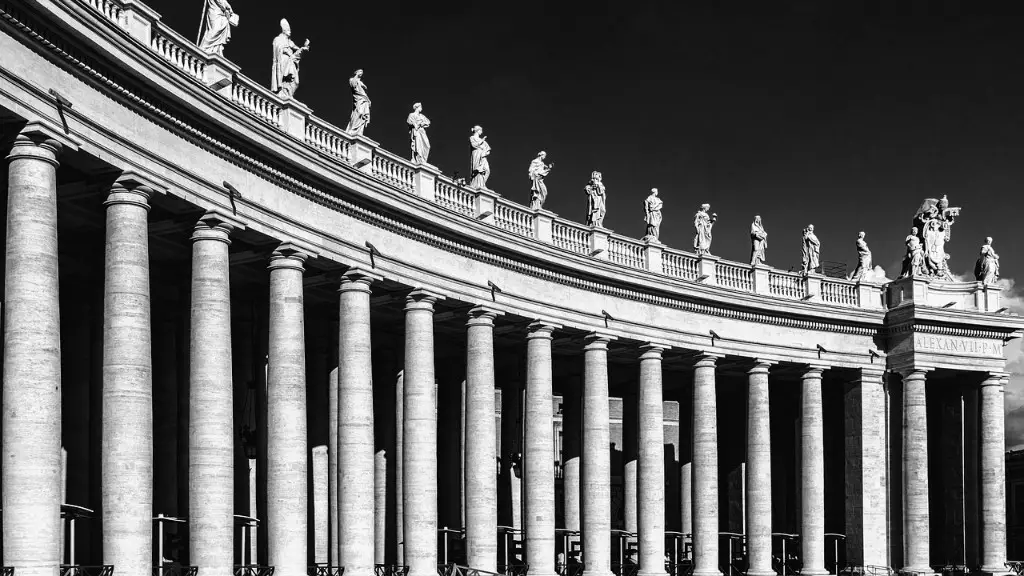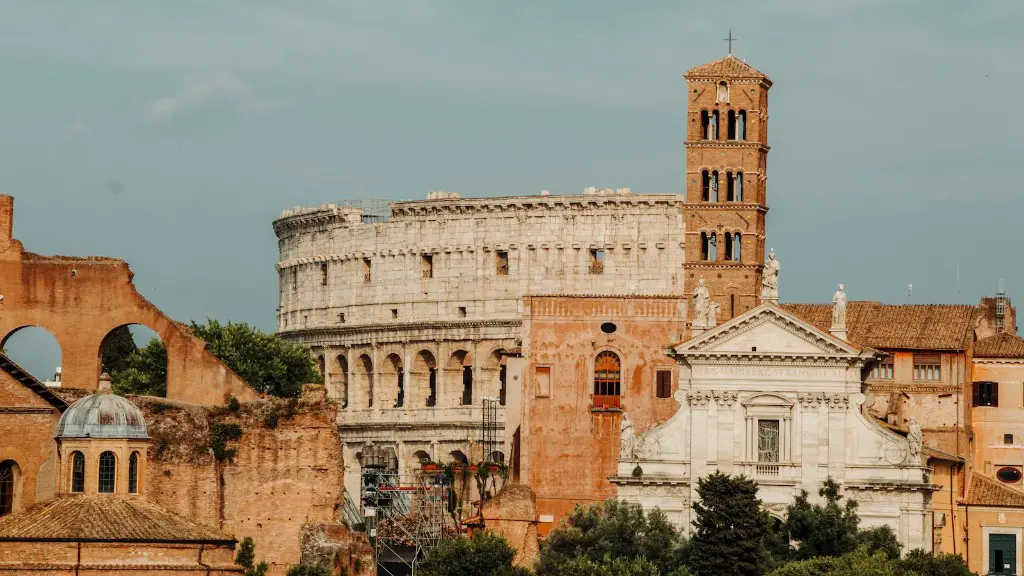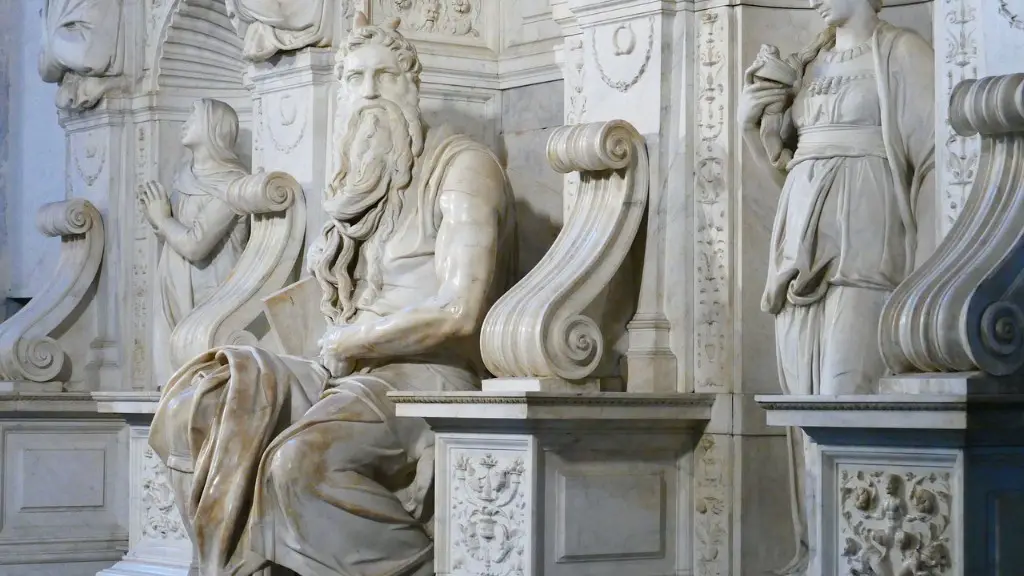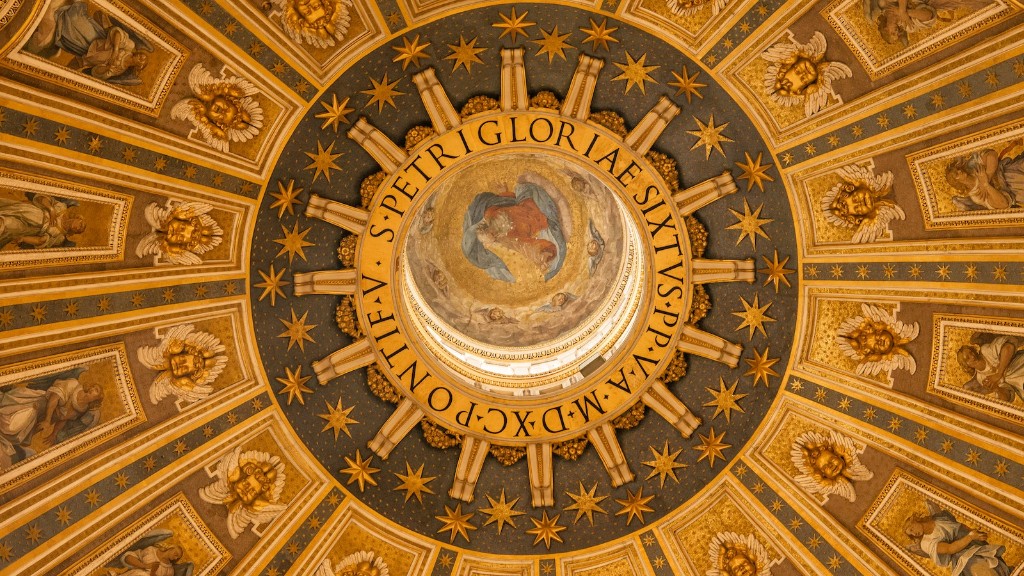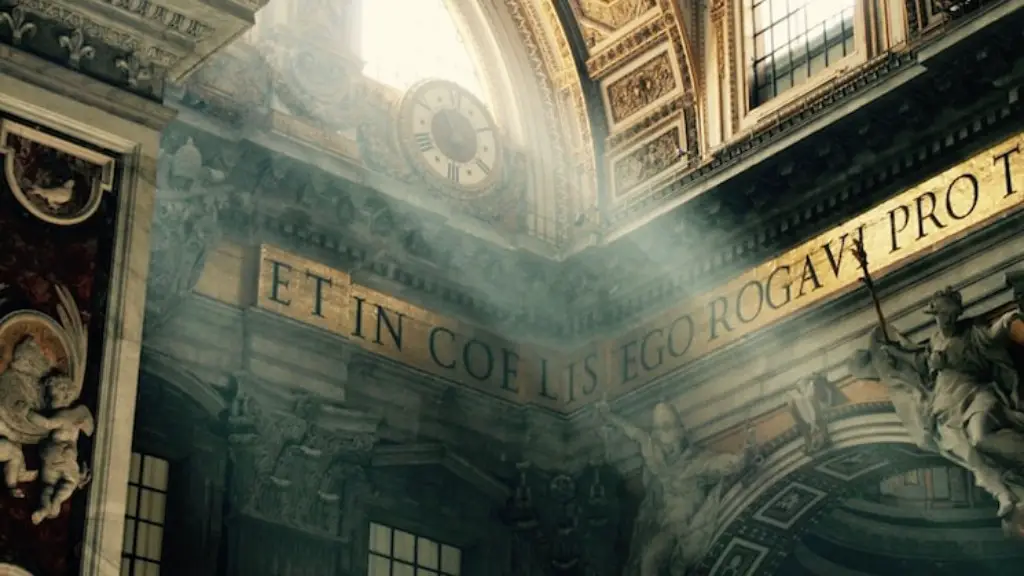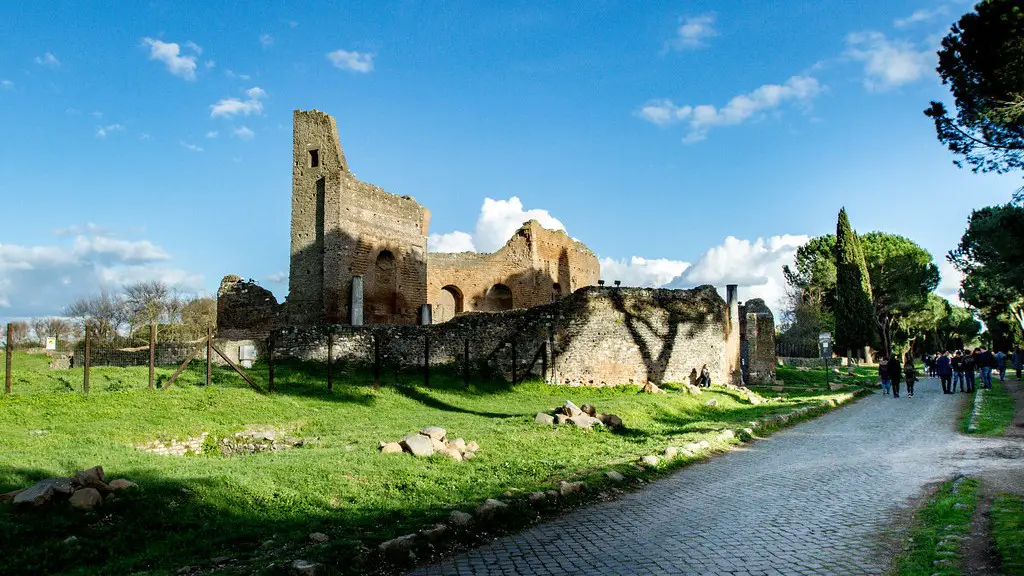Religion in ancient Rome played a significant role in the lives of the people. The Roman gods were worshiped and revered by the people. They believed that the gods would intercede on their behalf and help them in their time of need. Religion was also used as a way to instill values in the people. The Roman religion was based on the belief in the pantheon of gods. Each god had a specific role and was responsible for a certain aspect of human life. The people believed that if they kept the gods happy, they would be blessed in return.
The Roman Empire was one of the most powerful empires in the world for centuries. During that time, the role of religion in society was very different than it is today. Religion was used to control the people and to legitimize the ruling class. The emperor was seen as a god, and the people believed that he had the power to control their destiny. Religion was also used to keep order in society. The Roman religious system was very complex, and it required a great deal of knowledge to understand it. The average person didn’t have access to this knowledge, so they relied on the priesthood to interpret the gods’ will. This gave the priesthood a great deal of power, and they used it to their advantage.
How did religion affect Roman society?
For ordinary Romans, religion was a part of daily life. Each home had a household shrine at which prayers and libations to the family’s domestic deities were offered. Neighborhood shrines and sacred places such as springs and groves dotted the city. The Roman calendar was structured around religious observances.
The gods and goddesses were an important part of the Roman state. The people of Rome built temples to their gods and goddesses and observed rituals and festivals to honor and celebrate them. The gods and goddesses were thought to influence the lives of the people and the state.
How did religion change Rome
Christianity became the official state religion of the Roman Empire in the 4th century. This drastic change in policy spread the relatively new religion to every corner of the Empire. By approving Christianity, the Roman state directly undermined its religious traditions. Christianity became the dominant religion of the Empire, and the old Roman religion gradually faded away.
The early forms of Roman religion were animistic, believing that spirits inhabited everything around them. The first citizens of Rome also believed they were watched over by the spirits of their ancestors. These beliefs and influences shaped the early Roman religion and laid the foundation for the later development of Roman Catholicism.
What were three important influences on Roman religion?
The three important influences on Roman religion were the Greeks or Etruscans, Latin tradition, and people they conquered. The Roman religion was heavily influenced by the Greeks and Etruscans, who introduced many of their gods and goddesses to the Romans. The Latin tradition also played a significant role in shaping Roman religion, as many of the Roman gods and goddesses were based on Latin mythology. Finally, the people the Romans conquered also had a significant impact on their religion, as they introduced new gods and goddesses from their cultures into the Roman pantheon.
The rise of Christianity did play a small role in the decline of Rome. Christianity eroded traditional Roman beliefs and values, and caused conflicts between Christians and those who continued to hold onto the old pagan philosophies. However, Christianity was not the only factor in Rome’s decline; other factors such as economic and military problems also played a role.
What were the Romans most influenced by?
The Roman Empire was greatly influenced by ancient Greece in terms of art, architecture, and culture. However, the Romans were able to make some improvements to certain borrowed Greek designs and inventions. For example, they continued the use of columns, but the form became more decorative and less structural in Roman buildings.
The Roman empire was very tolerant of different religions and allowed people to worship their own gods as long as they also honored the Roman gods. The Roman religion included many major and minor gods, headed by the sky god Jupiter. In Roman belief, a sort of contract existed between the people and their gods. The gods provided protection and stability for the people, and in return, the people honored the gods with sacrifices and prayers.
What religion contributed to the fall of the Roman Empire
It is only recently that scholars have begun to question this view, and to suggest that paganism may have actually thrived during this period. This is due in part to the fact that the evidence for paganism in the Roman empire is largely literary, and therefore difficult to interpret.
The new view of paganism is that it was actually a vibrant and creative force in the Roman empire, and that it did not begin to decline until the fourth century AD. This view is based on a re-evaluation of the evidence, and on a more nuanced understanding of the Roman religious landscape.
It is still early days in the debate, but the new view of paganism is an exciting development that has the potential to radically change our understanding of Roman religion.
The spread of Christianity throughout the Roman Empire was greatly aided by the empire’s political unification and extensive road system. The belief that Christianity was a religion that anyone could adopt, regardless of regional or religious background, also helped to promote its spread.
What two cultures influenced Roman religion?
Rome was strongly influenced by the cultures of first the Etruscans, and then the Greeks. Hellenization, or, the spread of Greek ideals throughout the ancient world, is thought to have significantly affected Rome around the time of the Second Punic War (218-202 BCE).
The Roman state’s official position towards Christians was generally to ignore them unless they clearly challenged imperial authority. Christians were occasionally persecuted and formally punished for their beliefs during the first two centuries CE, but this was not the state’s official policy. Christians were only persecuted if they openly defied the authorities or engaged in activities that were deemed to be a threat to public order.
How was Christianity viewed in the Roman Empire
The Early Christians in Rome faced a lot of suspicion and misunderstandings from the general public. Some people mistook their rituals for cannibalism or incest, which made them an easy target for persecution. Despite this, the followers of Jesus continued to work hard to spread the message of Christianity throughout Rome.
The Roman values were: bravery, loyalty, piety, seriousness, respect and authority. Bravery was defined by the term virtus and initially, it had a male designation (the word comes from the word vir, meaning “husband”).
Which of the following most influenced Roman religion?
Roman religion was highly influenced by Greek religion. The Romans made Greek gods as their own, but gave them Roman names. The Romans were more concerned with following the correct rituals than with stories about their gods.
The Roman empire was greatly influenced by the Greeks and their culture. Nearly every facet of Roman culture was influenced by the Greeks, from the arts to the way of life. The Roman empire bequeathed this Greco-Roman culture to later European civilization.
How did the Romans attitude about religion
The Romans were very religious and believed that not worshipping their gods would have a negative effect on society. The Latin word religio translates to “obligation to the gods” and for the Romans, religion and politics were inseparable.
The pressure from invading barbarians was one of the primary contributing factors to the collapse of the Roman Empire. The Roman Empire was constantly under attack from outside forces, and climatic changes and disease only made things worse. The Roman Empire was simply not able to adequately defend itself against these external threats, and as a result, the Empire slowly crumbled from within.
Conclusion
Religion played a significant role in Ancient Rome, with the most prominent religion being Roman Catholicism. Ancient Rome saw the rise of Christianity, which had a profound impact on the Roman Empire. Christianity became the state religion of Rome under Emperor Constantine, and the Emperor Theodosius I made it the official religion of the empire. This resulted in a period of religious intolerance, with pagan religions being suppressed. However, this intolerance was not absolute, and religious toleration was practiced to some extent.
Religion had a deep and lasting impact on Ancient Rome. It played a significant role in shaping Roman society, culture, and politics. Religion helped to define the Roman way of life, and it played an important role in the everyday lives of Romans. belief in the gods was a central part of Roman life, and religious ceremonies and festivals were a vital part of Roman culture. Religion also played a significant role in Roman politics, as the state was deeply intertwined with the religious institutions of Rome. Religion played a vital role in the life of Ancient Rome, and it shaped the course of Roman history.
